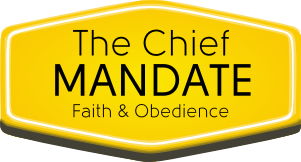God delights in saving; it’s part of His character. Sometimes, that’s why hard things come–not because of what we’ve done or have to learn, but for the illustration of God’s delight in deliverance.
There was a man born blind in Jesus’ day, and His disciples asked, “Rabbi, who sinned, this man or his parents, that he was born blind?” (John 9) The answer Jesus gives sheds light: “It was not that this man sinned, or his parents, but that the works of God might be displayed in him.” Why was this man born blind? Why did he stumble around in the dark, helpless and probably making a living by begging? We know he was “of age”–at least 13–but that his parents were both still alive. Why didn’t God spare this son of Israel, and give him a healthy body so that he could work and further the kingdom? What must seem a mystery up to the day of the miracle becomes delightfully obvious when Jesus touches the young man’s eyes. His blindness was for God’s glory! The hardness of sin and disease was in his eyes so that Jesus could show His love in deliverance!
Joseph was repeatedly scorned, abused, and had his life drastically changed, again and again. Sitting in prison, falsely accused, Joseph must have questioned why. After all, hadn’t he followed God’s commands? Hadn’t fled evil and done what was right, even under adverse circumstances? But God showed Himself mighty in saving Joseph from the pit, and made Joseph a type of Christ when He provided salvation through Joseph for the family of Israel. Wouldn’t it have been simple for God to keep the famine away from Cannan, and there to be plenty of food? Of course God could have made Abraham’s descendants into a great nation where they were at, and avoided the exodus from Egypt, the trials in the desert, and even the conquest of the Jordan. But that’s not the point.
God arranges history for the good of those who trust in Him. He does it because He loves us, and to demonstrate His glory. History is full of the delight of God’s salvation, and how wonderfully he has rescued us. As David has it,
The LORD is my rock and my fortress and my deliverer, my God, my rock, in whom I take refuge, my shield, and the horn of my salvation, my stronghold. (Psalm 18)

Recent Comments